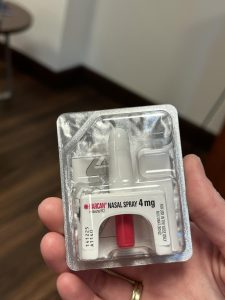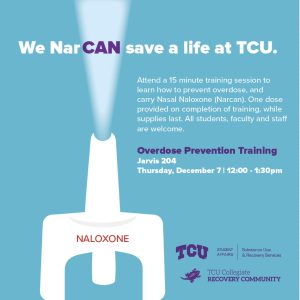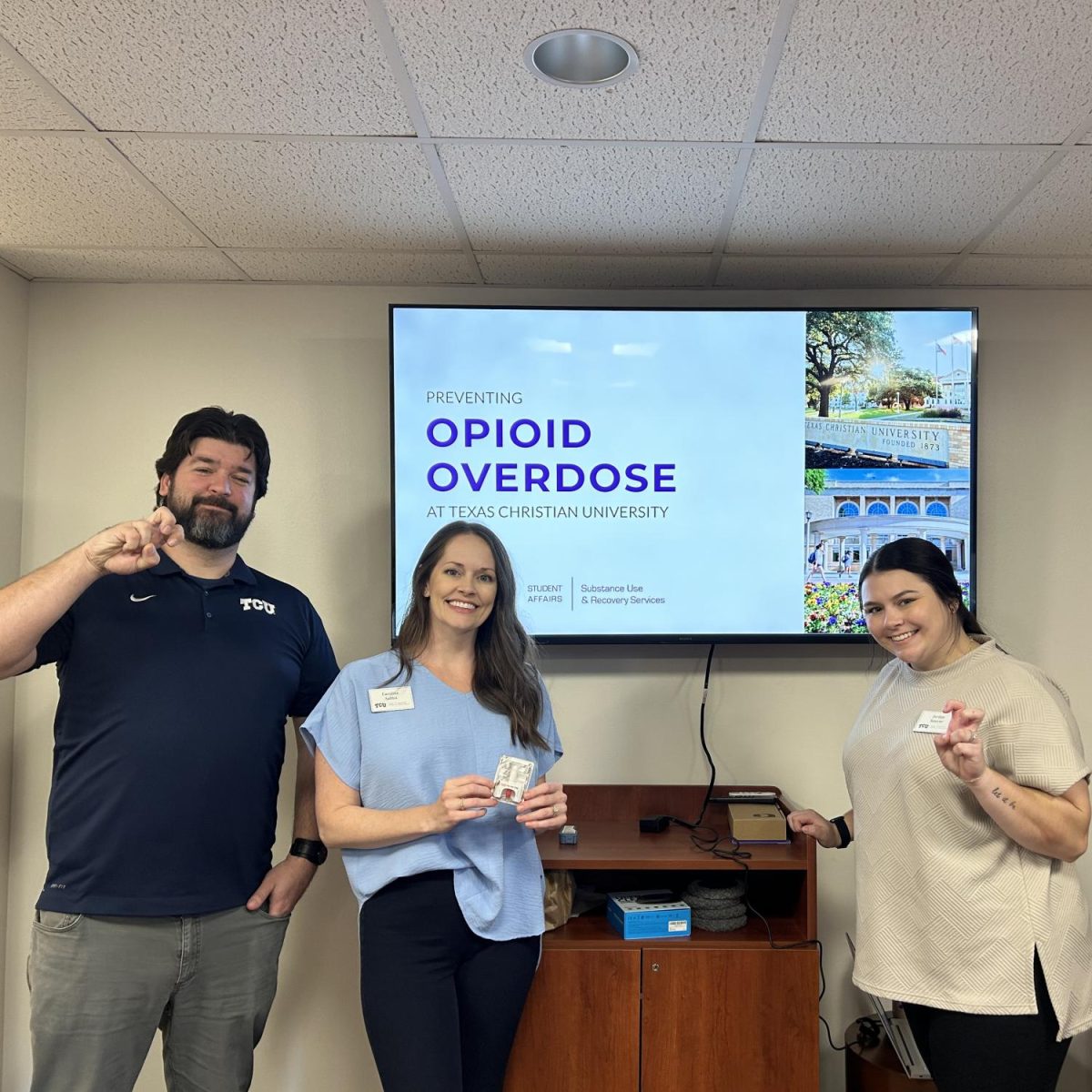Fifteen minutes of training could save a life. That’s how long it takes to learn how to use Narcan, an FDA-approved over-the-counter medication that reverses the effects of an opioid overdose.
TCU Substance Use and Recovery Services offers monthly workshops to help students, faculty and staff know how to react. The office equipped TCU police, hall directors, athletic trainer and other staff on campus with Narcan long before it was widely available with the recent FDA approval.
“We try to make it really tangible and easy for students to come,” said Caroline Sahba, the Assistant Director of Substance Use and Recovery Services.
The 15-minute Narcan training, which takes place in Jarvis Hall, includes a brief overview of what opioids are, the signs of an overdose and how to administer Narcan. Participants are given a free dose of Narcan, which Sahba’s office obtained through a grant from the University of Texas at San Antonio nursing school.

“No one is planning to overdose,” Sahba said. “Fentanyl can be laced in almost anything, not just opioids. It can be laced in a stimulant like Adderall, or in a cannabis product like an edible. It’s not detectable, you can’t see it, so you never know if you’re putting something in your body that contains something you aren’t aware of.”
Opioid-involved overdose deaths rose 69% between 2017 and 2021, from 47,600 to 80,411, according to the National Institute on Drug Abuse (NIDA).
“The person at risk of an overdose of opioids isn’t just someone who is regularly using opioids; It is someone who is using something for the first time,” Sahba said. “I would rather someone have Narcan and never need to use it than need to use it and not have it.”

Since the trainings began last spring, Sahba said many students have attended.
Narcan quickly restores a person’s normal breathing if it has slowed due to an opioid overdose. The medication does not affect someone who does not have opioids in their system, making it safe for anyone to administer without consequences or side effects.
“There’s a lot of perceptions about what substance use in college looks like and I want to kind of break those myths and help people set goals and change their relationship with substances,” Sahba said.










